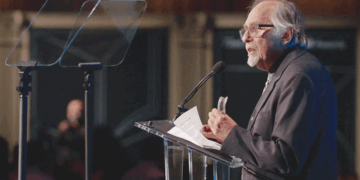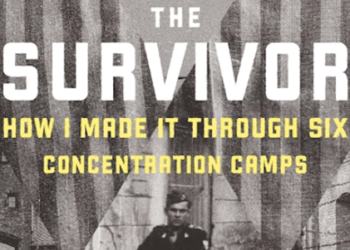Like Dreamers: The Story of the Israeli Paratroopers Who Reunited Jerusalem and Divided a Nation, by Yossi Klein Halevi, Harper, 608 pages, $35.
Reviewed by NEAL GENDLER
Yossi Klein Halevi’s brilliant account of Israel’s left-right divide is a spellbinding story of people’s evolving views and of conquest’s mixed blessings.

American-born Halevi, journalist and senior fellow at Jerusalem’s Shalom Hartman Institute, previously wrote At the Entrance to the Garden of Eden. In Like Dreamers, he follows seven paratroopers of the reservist 55th Brigade, whose commander, Motta Gur, famously radioed: “The Temple Mount is in our hands.”
The title comes from Psalm 126: “When the Lord returned the exiles of Zion, we were like dreamers. Then our mouths filled with laughter and our tongues with songs of joy.”
Indeed, Halevi says, Israelis swarming across the 1949 armistice line in summer 1967 felt as if they were in a dream, suddenly transformed from fearing destruction to fulfilling the rest of their 2,000-year-old longing for the holy city, the site of the Temple and the biblical heartland west of the Jordan River. For many, it was the “end of the Jews’ exile from humanity,” he says.
“Like a lost mythical land, Judea and Samaria were resurfacing.” Indeed, “the Six Day War unleashed among Israelis paradoxical longings. Judea and Samaria promised a restored past; Sinai’s vast emptiness promised a limitless future.” For a time, Arabs and Jews could travel freely from the river to the sea. But “the happy ending of Jewish history barely lasted the summer of 1967. Arab attacks resumed.”
A decade’s work, Halevi’s beautifully written history is, he says, “a story about the fate of Israel’s utopian dreams, the vast hopes imposed on this besieged, embattled strip of land crowded with traumatized Jewish refugees.”
Interviewing more than 200 people, Halevi coaxed deep thoughts from men who pursued differing paths to leadership. He expresses their beliefs with compassion, neutrality and the deftness of a good novelist, making 564 pages of reading — counting the introduction — fly by.
Some kibbutzniks were raised in communities that not only rejected Jewish practices but adored Stalin. Religious early “settlers” appear as idealists reclaiming the land of our ancestors, not the wild-eyed fanatics of recent television news.
Their movement, Gush Emunim, was created by the brigade’s Hanan Porat, later a Knesset member. Their educational institutions were led by the brigade’s Yoel Bin-Nun, deeply religious, compassionate, torn between the land as fulfillment of Israel’s return and the need to prevent national division over it.
But after several settlers’ convictions for a terrorist plot, growing Arab terrorism, and Yitzchak Rabin’s assassination, “both the right-wing dream of a greater Israel and the left-wing dream of Peace Now, Yoel concluded, were delusions.”
The paratroopers’ left-right divide reflects secular-religious lines, but another great Israeli rift, less relevant, gets scant though clever mention. Troubadour kibbutznik Meir Ariel’s deepening interest in Judaism makes friends wonder if he “would become one of them — the black-hatted ghetto Jews darkening the land of the free Hebrews?”
Although five main characters came from kibbutzim, kibbutzniks were only about 4 percent of the nation — but half the brigade, 70 percent of its officers and 26 percent of 1967’s casualties. The 55th led the Suez crossing in the costly 1973 war, in which Israel was victorious but felt defeated.
Two quibbles: Halevi calls Menachem Begin a Holocaust survivor, which isn’t quite accurate – fleeing the Nazis, he was arrested by the USSR — and Gur, a recurring, important figure, isn’t in the index.
Halevi excels at expressing his main point, Israel’s post-‘67 dilemma. “The children of Israel could no longer agree about what was blessing and what was curse. … For one part of the nation, remaining in the territories was an existential threat; for another part, the existential threat was withdrawing.”
After three decades of left-right disagreement, “a majority of Israelis now found themselves in an amorphous center. In principle, most Israelis accepted a two-state solution and were prepared to make almost any territorial compromise that would bring peace; in practice, few believed that any territorial compromise could achieve that.”
***
Neal Gendler is a Minneapolis writer and editor
(American Jewish World 10.25.13)



















